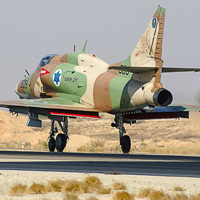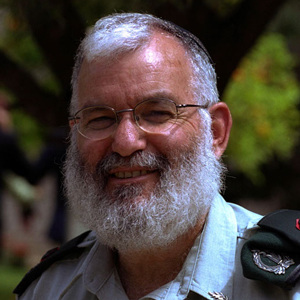Jerusalem
Israeli National Defense: Security Doctrine and the Balance of Forcesעברית
In the State of Israel, most citizens serve in the army and many citizens serve in the reserve forces. Yet despite this first-hand military experience, there is a lack of high-level public discourse regarding many of the foundational issues that relate to the military capabilities of Israel’s defense forces.Led by former Israeli National Security Advisor Maj. Gen. Yaakov Amidror, this institute will focus on three central issues where the lack of serious national discussion is a problem:
1. The defense conception of the IDF as it is applied in real life.
2. The balance of military strength between the air forces and the ground forces of the IDF.
3. The threat of terrorism. Since will likely be the central challenge to the State of Israel in the near term—and potentially the reason why Israel will also have to undertake wide ranging military operations in the future—we will address this security issue as well.
Security questions are widely discussed in various Israeli forums, conferences, and panel discussions, but such discussions are typically more political in nature rather than being rigorously analyzed from a professional military perspective. We will concentrate on these key issues for five straight days in depth. We will hear primarily from those individuals—political and military experts—who have had to deal with these central issues in the past.

The challenge before us is considerable:
Israel has no written, agreed upon defense conception. A few years ago, former minister Dan Meridor unsuccessfully attempted to achieve a consensus statement of principles and policy. But this document was never seriously discussed in any governmental forum, and it was certainly never adopted as obligatory. Our analysis will examine the history of such efforts to formulate a national security concept, going back to the roots of Ben Gurion’s security doctrine at the founding of the State. That doctrine still serves as an important intellectual basis to those who deal with this issue, even though this doctrine lacks formal validity. Looking back and looking ahead, we will delve into the foundational principles which must stand at the very heart of such a doctrine, and we will conduct an internal conversation to cast light on the proper manner of engaging and advancing this issue in the future.
The question of the character and make-up of the armed forces always stood at the center of the IDF’s thinking and planning. At present, the decision to cut the military budget is forcing the State of Israel to make difficult decisions regarding the size of its forces. This sharpens the question whether to allocate greater budgetary resources towards the building of ground forces or to building the air forces. Decisions regarding this balance of forces will have long term consequences in their implementation and a dramatic impact on Israel’s future ability to grapple with new crises and future wars. These decisions will also have a large economic impact, because the main expenditures in the military budget stem from its size and its internal balance.
The threat of terrorism, in all its manifestations, will continue to confront Israel in the years ahead. Terrorism may be the primary catalyst for Israel to undertake large scale campaigns, like those conducted during the 2006 Lebanon war or the 2012 “Pillar of Defense” campaign into Gaza. Our task is to characterize this threat in a clear fashion, to learn the lessons of 2006 and the changing meanings in the ability to deal with the threat in the wake of Operation Defensive Shield (2002), in order to refine our anti-terrorism concept and develop the abilities necessary to deal with it.
Our hope is that the ideas discussed and the participants involved in this institute will make a major contribution to defining Israel’s true security needs in the years ahead.
Time and Location
This institute will take place at Beit Avi Chai in the heart of Jerusalem (King George 44). This is a full time commitment for Sunday – Thursday, with required sessions in the morning, afternoon, and some evenings.

 Major General Yaacov Amidror served as the National Security Advisor to the Prime Minister of Israel and the Head of the National Security Council from April 2011 to November 2013. He is now the Anne and Greg Rosshandler Senior Fellow at the Begin-Sadat Center for Strategic Studies, in Bar Ilan University. He served with the Israel Defense Forces (IDF) for 36 years. During his…
Major General Yaacov Amidror served as the National Security Advisor to the Prime Minister of Israel and the Head of the National Security Council from April 2011 to November 2013. He is now the Anne and Greg Rosshandler Senior Fellow at the Begin-Sadat Center for Strategic Studies, in Bar Ilan University. He served with the Israel Defense Forces (IDF) for 36 years. During his…